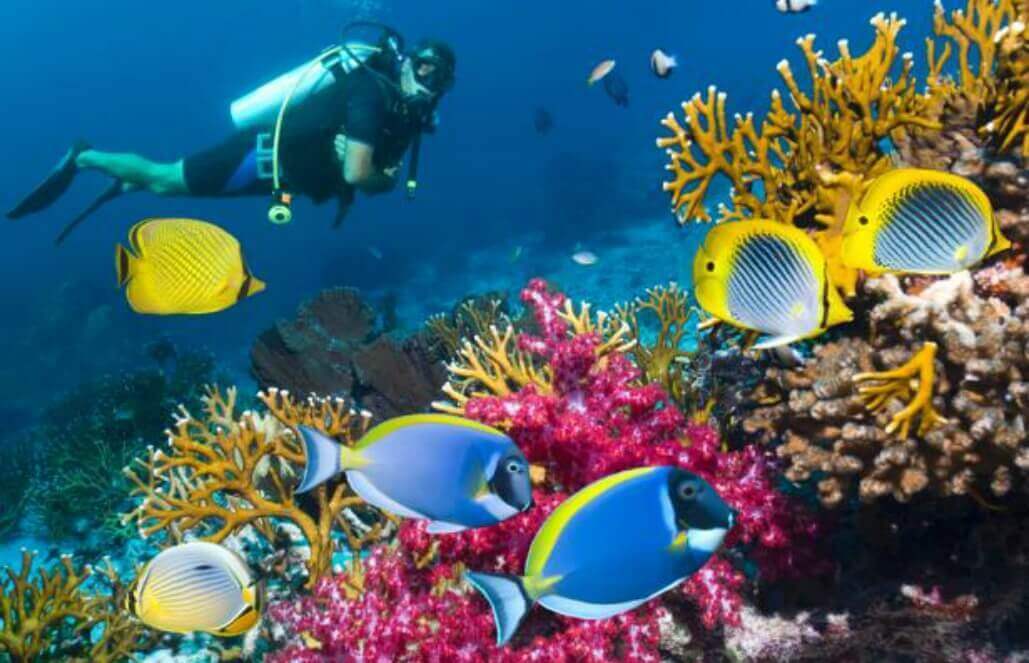How to Get Into Marine Conservation: 5 Ways To Do It

Getting involved in marine conservation can be a rewarding experience. You can participate in various activities, such as joining an aquarium volunteer group, teaching marine conservation, or touring with a conservation group.
Tour
Taking a trip to get involved in marine conservation is a fun and exciting way to explore the world while helping to protect our precious ocean. You can learn a lot about marine biology while getting up close and personal with dolphins, whales, turtles, and many more marine creatures, or you can look up to Daniel Keller Naples florida.
You can also volunteer while you’re on your tour. Some tours include underwater clean-ups to help protect vulnerable marine species. You can even participate in some of the research and surveys are done to ensure the ocean’s health is intact.
If you’re looking for a marine conservation vacation, you can choose from various destinations around the globe. The Azores, for example, is a hotspot for whale conservation. You can go on dive-free expeditions that involve logging ecological data, recording whale vocalizations, and identifying whales.
Volunteer
Taking on a marine conservation volunteer job is a great way to see the world while doing something good. You’ll be able to make a difference in various ways, from protecting the oceans to educating local communities about marine conservation.
Some of the best volunteer programs focus on underwater ecosystem conservation, while others focus on beach clean-ups. Working on a sea conservation project is an excellent way for college students to gain valuable work experience.
As the number of oceans that need protection rises, the demand for a wide array of marine-related services increases. As such, volunteers have the opportunity to help preserve coral reefs and other endangered habitats.
Aside from the ocean, other marine-related volunteer programs involve working on the land. These projects include helping to protect endangered loggerhead turtles and assisting with sea turtle rehabilitation.
Intern
Taking an internship in marine conservation is a great way to learn more about these amazing animals and help to protect their habitats. In addition to gaining hands-on experience, interns can also gain professional skills, which can translate into a rewarding career.
There are many different options for marine conservation and marine biology internships—these range from beach clean-ups in Fiji to rehabilitating marine wildlife in Tenerife. There are even internships in Mexico, where interns can work with local communities to protect coral reefs. These internships can help students get a taste of what marine conservation is all about and can contribute to their university projects.
The Mesoamerican Barrier Reef is one of the world’s most extensive coral reefs and is home to endangered sea turtles and eagle rays. It is also home to parrot fish and sea horses. These species are endangered due to plastic pollution, a significant ocean polluter.
Teach
Having a marine conservation training program in your school can help students better understand the ocean and how they can protect it. The program offers hands-on activities, scientific information, and real-life examples that can be used in classrooms and other learning environments.
The NODE Project curriculum is designed to provide teachers with various marine-related tools and resources. These include a selection of videos and a slew of practical activities. Educators can use the NODE Project to teach their students about sound travel in waves, whale communication, and ocean noise measurement.
The Go Green and Think Blue Toolkit includes marine debris stewardship and research lessons. These include marine debris surveys and an outreach program to educate students about the issues.
Children can learn about ocean ecosystems, wildlife, culture, and other topics from an interactive field guide at the National Marine Sanctuaries of the West Coast. The articles on the site are written engagingly and encourage readers to take action to protect the environment.
Network
IMPAC4 – Fourth International Meeting of Marine Protected Areas – convened in La Serena, Chile, on 6 September 2017, with various symposia, plenary sessions, and oral presentations. These symposia were organized around the theme, ‘Civil Society Networking for Marine Conservation in the Southern Cone.’
Panels discussed the management of marine protected areas (MPAs), MPA networks, and the benefits of collaboration. Topics included: defining the role of a network manager, the need for regular monitoring and evaluation, the value of ship-rider agreements, the importance of surveillance, the importance of technical expertise and partnerships, and the need for sustainable financing.
The second day of IMPAC4 included a series of symposia addressing the issues of promoting biodiversity and food security, marine ecosystems and fisheries, and civil society and MPAs. The morning plenary session provided a short history of MPA evolution, followed by a discussion on MPA networks and the need to protect species that travel across different habitats.